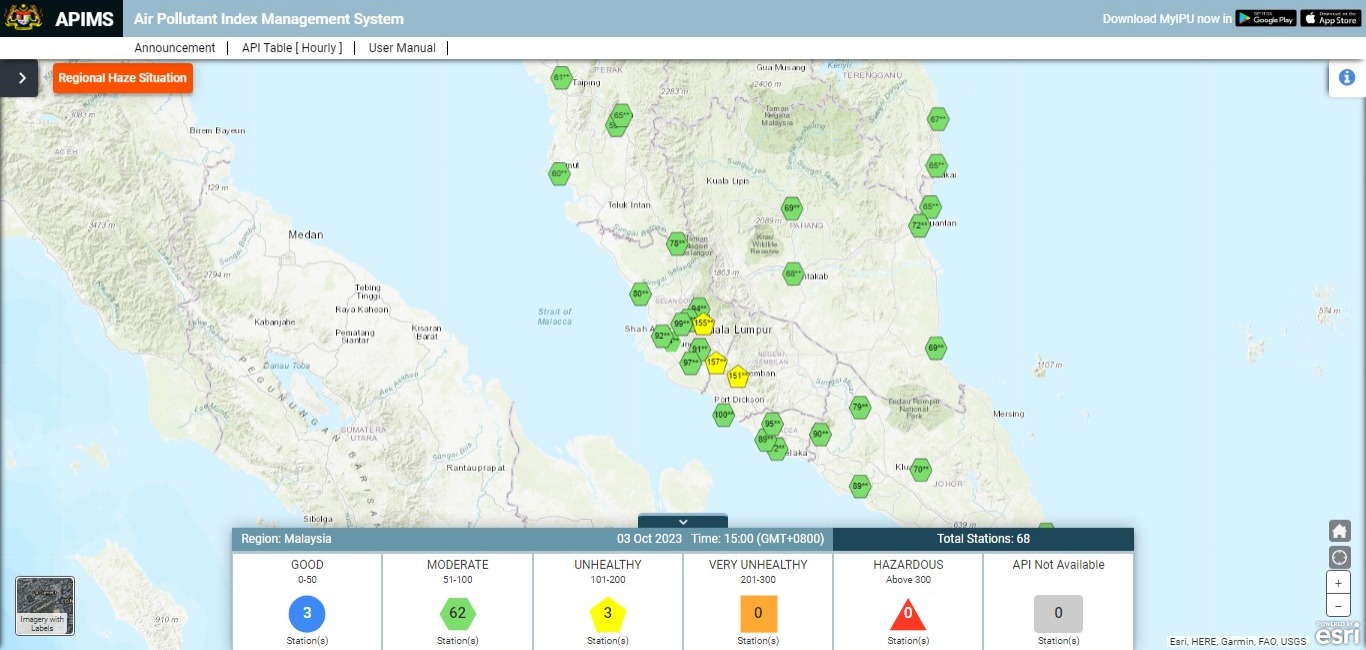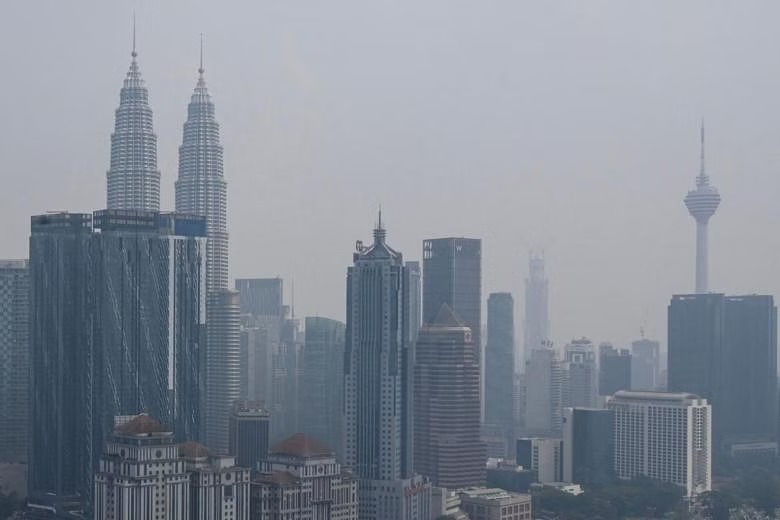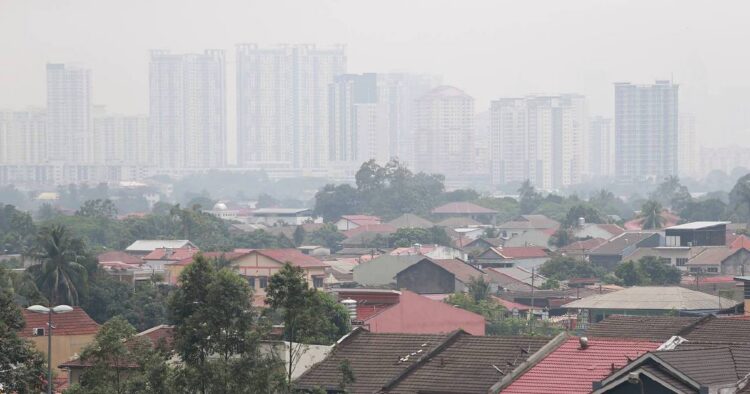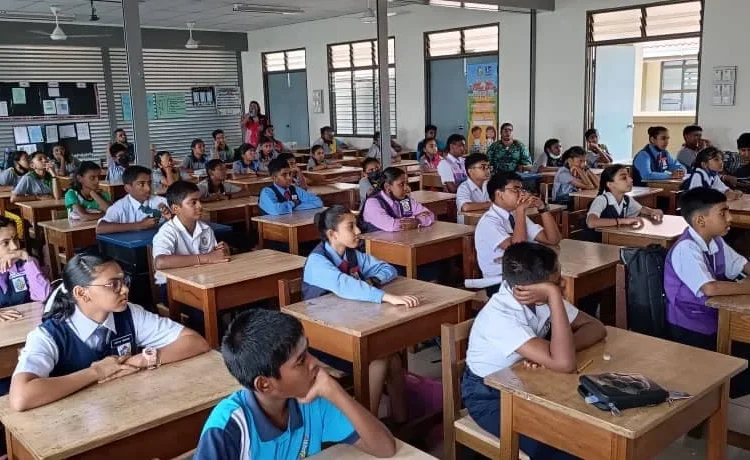Haze in Malaysia, often caused by regional forest fires, blankets the country with smoke, reducing air quality and visibility. It poses health risks and disrupts daily life. Authorities regularly issue warnings and take measures to mitigate its impact on the population and the environment.
According to The Straits Times, Malaysia’s environmental department attributed the unhealthy Air Pollutant Index (API) readings within the country to forest fires in Indonesia. On Friday, Kuala Lumpur, Putrajaya, and Negeri Sembilan all grappled with hazy conditions.
Asean Specialised Meteorological Centre (ASMC) stated that the haze resulted from smoke columns originating in Sumatra, which were then carried northwestward due to prevailing wind patterns. “Under the prolonged dry weather, elevated hot spot activity and widespread hazy conditions are expected to persist over the fire-prone areas in southern and central Sumatra and southern Kalimantan. The prevailing winds are forecast to blow mainly from the south-east,” it stated.
The haze has been getting worse. As of 3pm today, seven places reported as unhealthy zones where the Air Pollution Index is more 100. Reportedly, the Air Pollutant Index in
Nilai, Negeri Sembilan – 157,
Cheras, Kuala Lumpur – 155,
Seremban, Negeri Sembilan – 151
As per the Air Pollution Management system, a place is considered good when the air pollution index is below 50, moderate when it is within 51 – 100, unhealthy level when it has an Air Pollutant Index of 101 – 200, very unhealthy if it is within 201 – 300 and hazardous when it goes beyond 300. Hence, the above seven locations are categorized as unhealthy zones.

The director-general of the department reported that the National Oceanic and Atmospheric Administration’s satellite imagery identified 52 hot spots in Sumatra, 264 hot spots in Kalimantan, and none in Malaysia. He noted that dry weather is anticipated to persist in central and southern Sumatra and southern Kalimantan, pushing the dense haze northwestward.
In an official statement, Datuk Wan Abdul Latiff Wan Jaafar, the director-general of the Department of Environment (DoE), emphasized the need for schools, kindergartens, and nurseries to maintain continuous monitoring of Air Pollutant Index (API) readings.
If the trend shows an increase towards 200, preparations need to be made to shut down the institution. Out-of-classroom activities must also be halted if the API reading breaches 200″ he added. Latest announcement is schools, nurseries and kindergartens will be closed if the air pollutant index goes beyond 200 which is ‘very unhealthy’ level.

In the midst of haze, it’s imperative to minimize outdoor activities to safeguard health. Airborne pollutants can pose significant risks, especially to vulnerable individuals. Staying indoors and heeding official guidance helps reduce exposure and ensures the well-being of ourselves and our communities.
Source: New Straits Times
Follow us on Instagram, Facebook or Telegram for more updates and breaking news.








